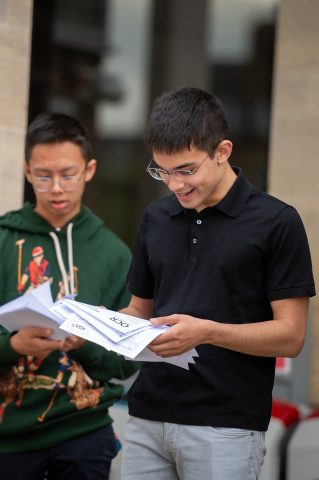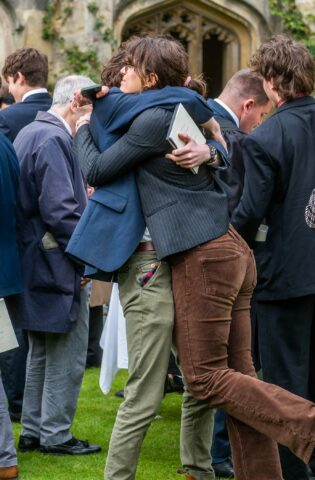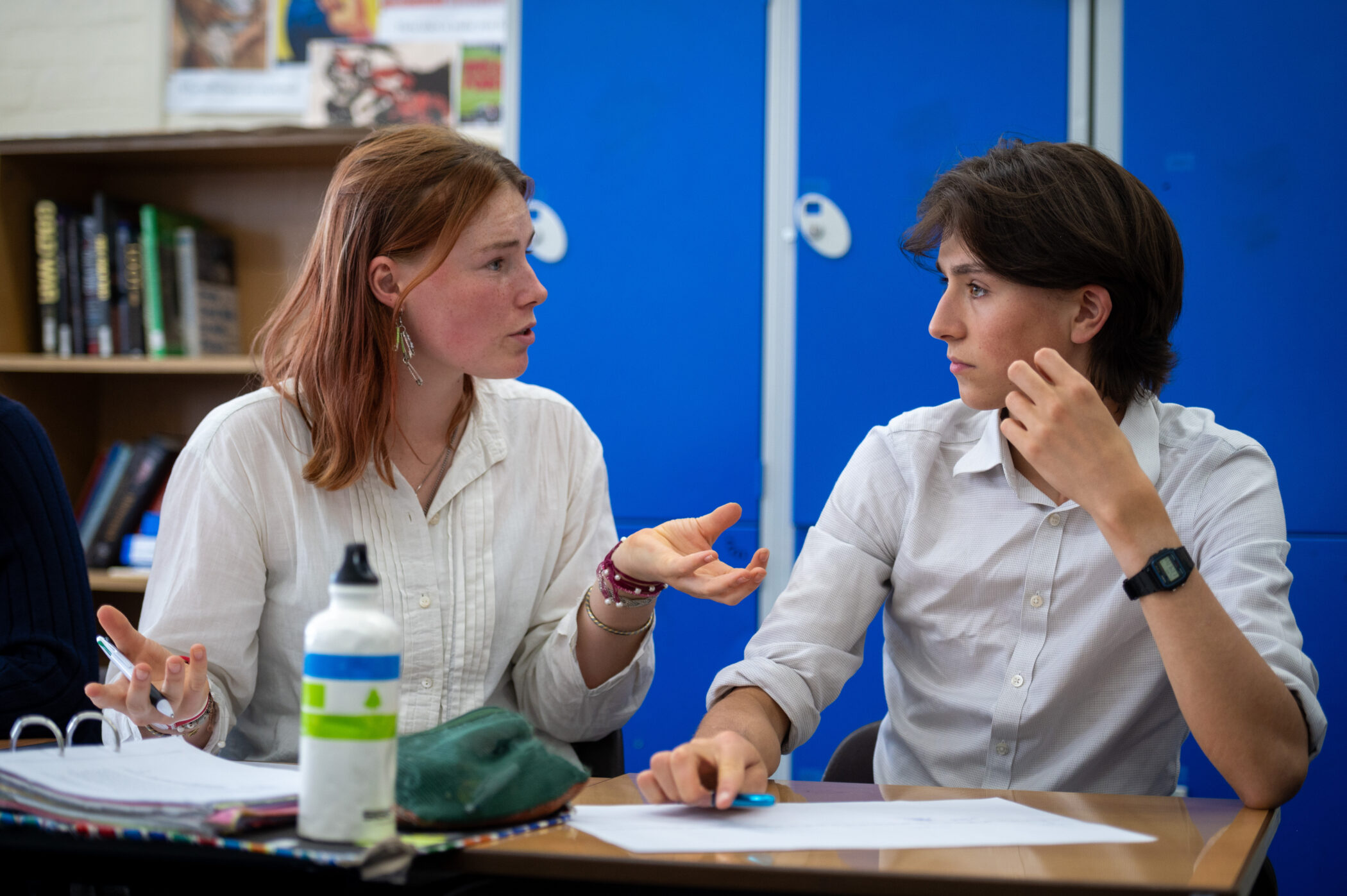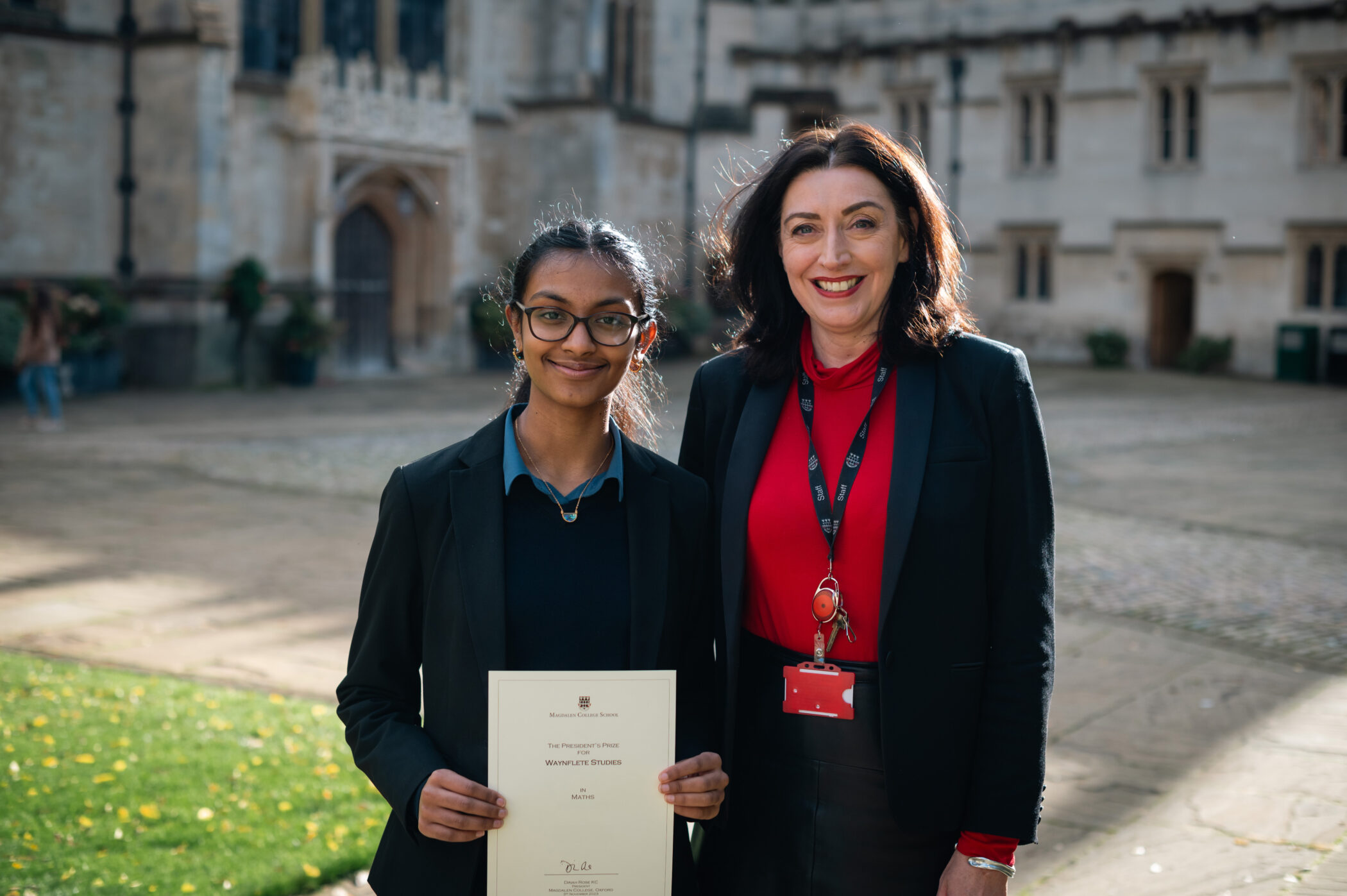A Level French
The French A Level course has been designed to inspire all students who have an appreciation of the language, literature, film, and culture of the French-speaking world.
The qualification has a straightforward structure with four engaging themes: Les changements dans la société française; La culture politique et artistique dans les pays francophones; L’immigration et la société multiculturelle française; L’Occupation et la Résistance. The four themes are studied alongside two works (either two literary texts or one literary text and one film).
In addition to timetabled lessons, every pupil studying French in the sixth form has a separate lesson with one of our language assistants.
Examination arrangements and course content
Paper 1: Listening, Reading, and Translation (40%)
Students will be assessed on their understanding of spoken and written French from a variety of types of authentic texts and listening material, as well as their ability to translate accurately from French into English.
Paper 2: Written Response to Works and Translation (30%)
Students must study two discrete French works from a range of novels, plays and a series of short stories. The content of the translation will be a passage based on one of the four themes.
Paper 3: Speaking (30%)
Students complete two tasks: a discussion of a theme from the exam specification and a presentation and discussion of an individual research project.
For Paper 2, students are required to study two works from the list below. This can be either two literary texts or one literary text and one film.
| Texts | Films |
| Boule de Suif et autres contes de guerre Guy de Maupassant, 1880 (short stories) | Au Revoir les enfants, dir. Louis Malle (1987) |
| La Place, Annie Ernaux, 1983 (novel) | Chocolat, dir. Claire Denis (1988) |
| Le Blé en herbe, Colette, 1923 (novel) | Cléo de 5 à 7, dir. Agnès Varda (1962) |
| Le Château de ma mère, Marcel Pagnol, 1957 (novel) | Deux Jours, une nuit, dirs. Jean-Pierre Dardenne (2014) |
| Le Gone du Chaâba, Azouz Begag, 2005 (novel) | Entre les murs, dir. Laurent Cantet (2008) |
| Les Mains sales, Jean-Paul Sartre, 1948 (play) | Intouchables, dirs. Oliver Nakache, Eric Toledano (2011) |
| Les Petits Enfants du siècle, Christiane Rochefort, 1961 (novel) | La Haine, dir. Mathieu Kassovitz (1995) |
| Le Tartuffe, Molière, 1669 (play) | La Vie en rose, dir. Olivier Dahan (2007) |
| L’Étranger, Albert Camus, 1942 (novel) | Le Dernier Métro, dir. François Truffaut (1980) |
| No et Moi, Delphine de Vigan, 2007 (novel) | Les Choristes, dir. Christophe Barratier (2004) |
| Thérèse Desqueyroux, François Mauriac, 1927 (novel) | Les 400 Coups, dir. François Truffaut (1959) |
| Une si longue lettre, Mariama Bâ, 1981 (novel) | Un Long Dimanche de fiançailles, dir. Jean-Pierre Jeunet (2004) |
| Un Sac de billes, Joseph Joffo, 1973 (novel) |
We recommend that you aim to do three things during the summer holiday:
1) Read Emile Chabal’s France OR Jonathan Fenby’s The History of Modern France
2) Practise your listening skills by watching the videos on these websites for ten minutes every day:
Easy French on YouTube https://www.youtube.com/c/EasyFrench/featured
(intermediate level with subtitles)
France 24 https://www.france24.com/fr/
(advanced level news stories)
3) Revise any points of grammar that were not entirely clear during your (I)GCSE course:
Language Guide https://www.languageguide.org/french/grammar/
If you do all of the above, you should be in a strong position to make the most of your study of French in the Sixth Form at MCS.
 MCS ranks among the top independent secondary schools in The Sunday Times Schools Guide 2024, placed seventh nationally and third in the Southeast.
MCS ranks among the top independent secondary schools in The Sunday Times Schools Guide 2024, placed seventh nationally and third in the Southeast.

 39 of our pupils achieved 10 or more 8 or 9 grades in 2023.
39 of our pupils achieved 10 or more 8 or 9 grades in 2023.
 Your donations contribute over £150,000 a year to bursaries as well as building an
Your donations contribute over £150,000 a year to bursaries as well as building an 

